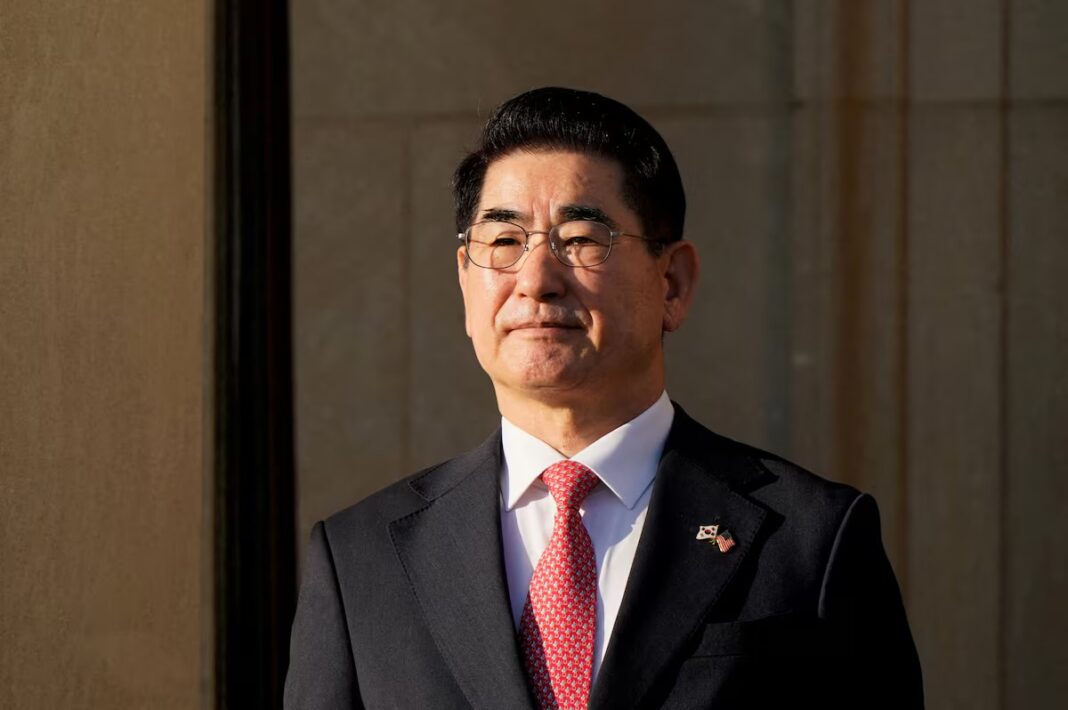Former South Korean Defense Minister Faces Insurrection Charges
The legal team representing Kim Yong-hyun, a former South Korean defense minister, is defending his actions during the brief martial law declaration earlier this month. The controversial decree, which lasted only six hours, has sparked widespread debate and led to accusations of insurrection against both Kim and President Yoon Suk Yeol.
Martial Law Declared Amid Political Tensions
On December 3, President Yoon Suk Yeol declared martial law, citing threats to the country’s democratic process. The move, which caught the nation by surprise, was lifted shortly after, leaving many questioning its purpose and legality.
Kim, accused of being a central figure in the decision, is now under investigation for his role. His lawyers argue that the declaration was a necessary measure to highlight abuses by opposition parties and safeguard South Korea’s democracy.
Defense Lawyers Justify Actions
Kim’s legal team emphasized that the martial law was not meant to harm the public. They pointed out that no casualties occurred during its brief implementation, and troops withdrew peacefully once it was lifted.
The lawyers also revealed that Kim had proposed imposing a curfew as part of the martial law measures. However, President Yoon reportedly overruled this suggestion, demonstrating, they argue, that the administration had no intention of escalating the situation.
Kim’s Troubling Detention and Legal Battle
Since his detention, Kim has faced intense public and legal scrutiny. On December 11, he attempted suicide while in custody, an act that highlighted the immense pressure he is under. Despite this, Kim maintains that his actions were in line with constitutional powers and insists the investigation against him is politically motivated. Kim has publicly taken responsibility for any public concerns caused by the martial law decree but continues to challenge the legitimacy of the investigation.
President Yoon Faces Impeachment and Legal Challenges
President Yoon Suk Yeol’s role in the martial law declaration has also come under fire. Parliament impeached him on December 14, with some members of his own ruling People Power Party joining the vote.
South Korea’s Constitutional Court will soon decide Yoon’s fate. It will determine whether to restore him to office or remove him permanently. The first hearing is scheduled for Friday. Yoon has not responded to summons for questioning. He has also not submitted the requested legal documents.
Public Reaction and Political Ramifications
The martial law declaration has divided public opinion. Supporters argue it was necessary to address threats to the nation’s stability, while critics claim it was an overreach of presidential power.
The situation has also created political turbulence in South Korea, with opposition parties seizing the opportunity to criticize Yoon’s administration. The controversy has deepened distrust in the government and raised concerns about the country’s democratic future.
Constitutional Authority vs. Public Perception
Kim’s lawyers argue that the president has constitutional authority to impose martial law when deemed necessary. They dismissed the accusations of insurrection as baseless and politically motivated.
The critics argue that the abrupt declaration and its quick withdrawal raise questions about the administration’s intentions and the decision-making process behind such a drastic measure.
Ongoing Investigations and Uncertain Outcomes
As investigations continue, both Kim and President Yoon face uncertain futures. The Constitutional Court’s decision will have far-reaching implications for Yoon’s presidency and South Korea’s political stability. Kim’s case is likely to set a precedent for how similar actions are judged in the future. As the nation grapples with balancing constitutional authority and public accountability.
A Nation on Edge
The martial law controversy has left South Korea at a crossroads. The outcome of these legal battles will not only shape the careers of Kim and Yoon but also influence the country’s democratic trajectory. With tensions high and political divisions deepening, South Korea must navigate this challenging moment to uphold its democratic principles and restore public trust.

